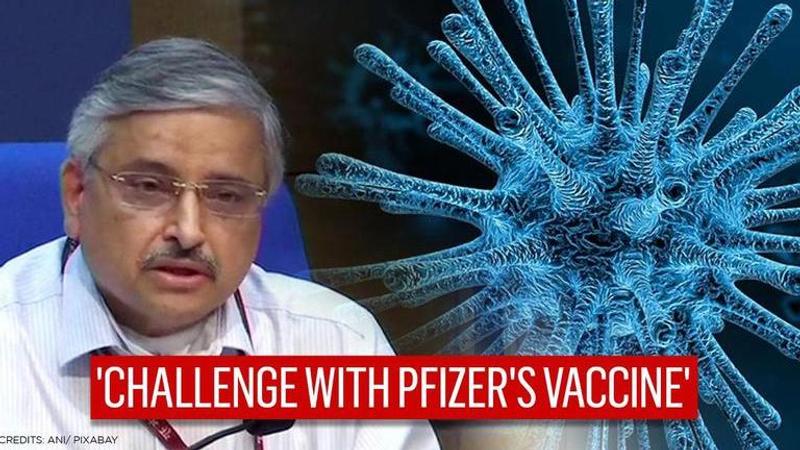Published 16:59 IST, November 11th 2020
COVID-19: AIIMS director finds 'potential' in Pfizer's vaccine; states challenge for India
Dr Randeep Guleria on Wednesday said that preserving Pfizer's COVID-19 vaccine at very low temperatures, -70 degree C, will be a challenge for India

On Wednesday, AIIMS Director Dr Randeep Guleria said the results of Pfizer's COVID-19 vaccine phase III trials are very encouraging, but preserving it at very low temperatures, -70 degree C, will be a challenge for India and other nations, especially in rural areas. Pfizer-BioNTech COVID-19 vaccine candidate has shown more than 90 per cent efficacy in preventing Coronavirus and now the two companies are working to distribute the experimental drug.
Speaking to ANI, Guleria emphasised on the need to keep the vaccine at a low temperature, stating that the Pfizer's vaccine has a lot of potential.
"The challenge with the Pfizer vaccine is that it has to be kept at a very low temperature, -70 degree Centigrade. That for low and middle-income countries would be a big challenge to maintain the cold chain, because having a vaccine to be kept at low temperatures especially going to smaller towns, rural India is going to be a challenge. This vaccine has a lot of potential but we will need to see as other vaccines also come out. Very encouraging news in the vaccine research field for all vaccine candidates in phase-III trials."
Guleria further said that the data by Pfizer is encouraging not only for the Pfizer vaccine but also for other vaccines being made by different companies.
"The data, which Pfizer has released, although not reviewed by experts, is very encouraging. In the phase-III trials, more than 40,000 patients were vaccinated, some got the vaccine, some got placebo, and they followed them up to see how many of them got COVID-19. It showed high efficacy, almost 90 per cent. The data needs to be looked at more carefully. It's encouraging not only for the Pfizer vaccine but also for other vaccines being made by different companies," he said.
Furthermore, the AIIMS director opened up about the challenges and said, "One we have to follow up to find out how long does it (immunity) lasts 3 months, 6 months, one year or more. The data also needs to be looked at how much protective value it gives as far as individuals are concerned."
How does the COVID-19 vaccine work?
Traditionally, a vaccine comprises of a dead or weakened part of the pathogen that causes the disease. The amount is such, that it won’t make the recipient sick but enough for the body to identify the virus or the bacteria as a foreign element which is followed by the generation of an immune response. Therefore, when the same individual is infected by the pathogen he or she is vaccinated, the immune response will be all set.
The Pfizer-BioNTech COVID-19 vaccine is mRNA-based. It means that the individual is not being injected with the parts of the virus but instead, the recipient will be administered with the part of the genetic code of the coronavirus. This further tricks the body into producing some of the viral proteins on it is own so that the immune system detects these proteins and generate a defensive response to them.
(With Inputs from ANI)
Updated 16:59 IST, November 11th 2020




